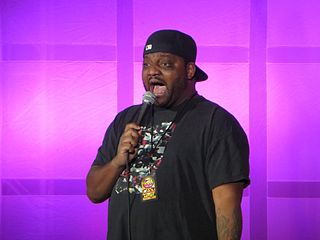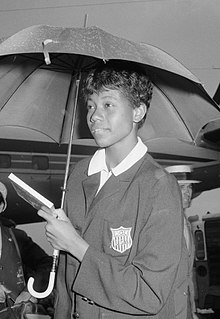A Quote by Lena Waithe
I think once 'Empire' hit, there was a lot of bad black TV that followed, because we work in the business of hit-seekers and copycats, so they're like, 'Oh this is a show about black people; this is about music, OK let's do a version of that.' And, of course, it doesn't work because it's not organic.
Related Quotes
I felt like it was a courageous show [Black-ish] from the beginning. We are a black family - we're not a family that happens to be black. But the show is not even about us being black. The show is about us being a family. That is groundbreaking - on TV, the black characters either happen to be black or they're the "black character," where everything they say is about being black. I think that's the genius.
As a black person on the outside, because there's so much black art and so much of black people's work circulating, so many people imitating what black people do, you would think that there'd be more black people on the business side. It didn't cross my mind that every label head, for the most part, is a white guy.
I'm always thinking about what a black lady would think about what I'm doing, just because I feel like they have such great taste, mostly because as black women, we've spent a lot of time downloading what a white male narrative is, so in my head, I'm like, 'If a black woman likes it, if she responds to it, then it's probably pretty damn great.'
Never had a hit movie or hit TV show or hit record. I just had visions of doing the best quality of music. Now there is a place for me because Frank Sinatra is dead. They want me to play the music. If it wasn't for that, I wouldn't be noticed. The only satisfaction is that I do what I do well. That's the only lawful satisfaction.
I know when the anthrax thing hit - white people, y'all was very nervous. Y'all would come up to me at work and warn me, like 'Oh my God, Aries, be careful. Don't open your mail.' Let me tell you something - black folks was never worried about anthrax because, half the time, we don't open our mail no way. We might think that's a bill. We might hold it to the light and go, 'That's a red slip.' If you want to get us with anthrax, put that in a Jay-Z CD. That's how you get us.
Katherine Johnson never complained, it just was what it was. She just said, "I just wanted to go to work and do my numbers." And she stopped right there. I think about that as a Black woman in Hollywood when I'm asked about diversity. I hate when people say diversity because the first thing you jump to is Black and white. When you talk about diversity, you're talking about women being hired in front of and behind the camera. You are talking about people with disabilities, the LGBTQ community...so I hate when people think about diversity.
There's no reason why you can't say "August Wilson, playwright" even though all of my work, every single play, is about black Americans, about black American culture, about the black experience in America. I write about the black experience of men, or I write about black folks. That's who I am. In the same manner that Chekhov wrote about the Russians, I write about blacks. I couldn't do anything else. I wouldn't do anything else.
I understand how difficult it can be for an African-American in today’s society. In fact, I can relate to black people very well indeed. My ancestors once owned slaves, and it is in my lineage to work closely with the black community. However, just because they were freed over a century ago doesn’t mean they can now be freeloaders. They need to be told to work hard, and the incentives just aren’t there for them anymore. When I’m president I plan to work closely with the black community to bring a sense of pride and work ethic back into view for them.
I don't claim to say, "All black women are like me," because they're not. One type of black woman can exist, but also another kind can exist. I also really hope that people feel permission to talk about their own troubles, but also to celebrate themselves. Sometimes I feel as though I'm trying to take a hit for the team so that other people then can move forward. I'm like, "Look, I just laid out all of my stuff, so what's the worst that can happen"?




































